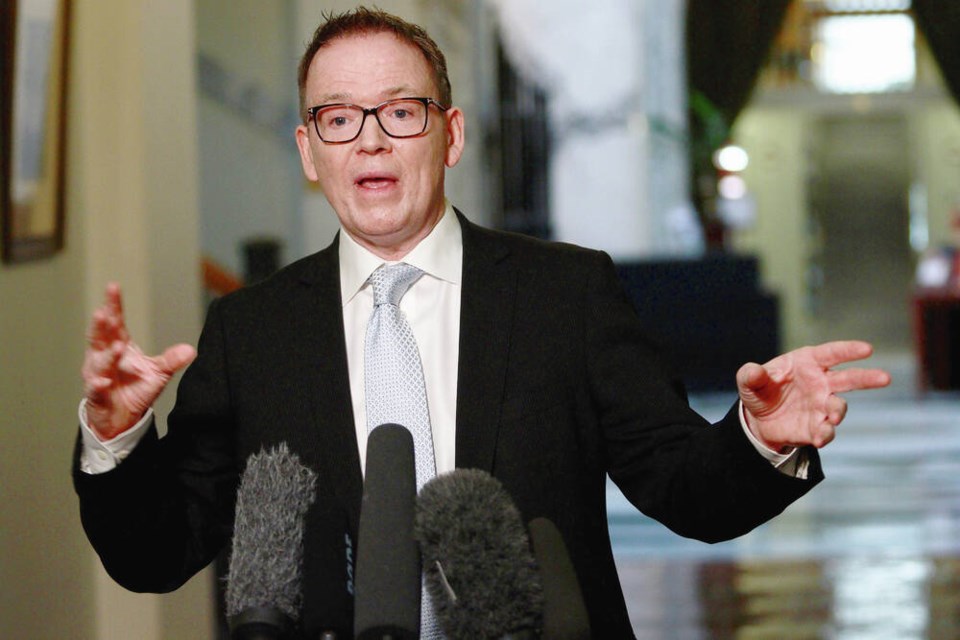Kevin Falcon, leader of the BC United party, says if elected, he will eliminate provincial income tax for anyone making $50,000 a year or less.
Calling it the biggest tax cut in the province’s history, Falcon estimates that the average taxpayer would save $2,050, with around 60 per cent of British Columbians paying no provincial income tax at all.
He also calculated that the tax cut would cost the provincial treasury $5.4 billion per year in forgone revenue.
So far that’s all quite clear, but then the waffling starts. Falcon says he intends no service cuts to offset the lost revenue, but other than hoped-for increases in private investment, he offered no details on how this is to be accomplished.
Add his promise to balance the budget, which is presently posting a $7.9 billion deficit, and major cuts in government spending will be unavoidable.
That’s not to say that economies aren’t due.
Yet there are only two ways to make significant savings in government spending. The simplest would be to eliminate some ministries in their entirety.
And yes, there is some overlap and duplication.
Do we really need both a Ministry of Emergency Management and Climate Change, and a Ministry of Environment and Climate Change Strategy? Or a Ministry of Health and a Ministry of Mental Health and Addictions?
Yet some brute facts must be faced here.
Of the 23 provincial ministries, 10 could be eliminated completely, yet the savings would barely pass $1 billion. That’s only one-fifth of the amount Falcon needs to cover the tax cut, and less than a tenth of the amount required if balancing the budget is rolled in.
The other option is to slim down the public service by targeted layoffs. And to an extent this may make sense.
Since the beginning of the COVID outbreak, the B.C. public service has grown by 25 per cent, a huge expansion by any standard. In comparison there has been virtually no increase in corporate employment, and self-employment has actually fallen.
So yes, some slimming down can be justified.
But here again a brute fact must be faced. More than half of government spending goes on salaries.
That means a significant per cent of the savings Falcon needs must come from layoffs. And considering that those let go would be entitled to compensation, still more layoffs will be required.
Unavoidably, the number of employees let go must reach into the thousands, and this at a time when the unemployment rate, province-wide, is over five per cent.
It’s not difficult to see what drove Falcon to make such a promise.
In the latest poll released by 338Canada, BC United has fallen far behind the leading two parties.
The NDP are in first place, with 40 per cent of the projected vote.
John Rustad’s Conservatives are close behind at 38 per cent, but BC United ranks joint last, tied with the Greens at just 10 per cent.
If the election were held tomorrow, and those poll results are accurate, BC United would come close to a wipe-out.
So yes, Falcon needed to do something dramatic.
However what he really needed to do was forge a merger with the Conservatives, an idea that’s been toyed with over the summer.
For it can be argued that after seven years in power, and two terms in office, the NDP need a rest.
Yet so long as the right-of-centre vote remain split two ways, David Eby will likely remain premier come the election, less than two months away.
Realistically, Falcon’s promise to slash income tax rates, and with them government revenues, is unlikely to change that.
>>> To comment on this article, write a letter to the editor: [email protected]



